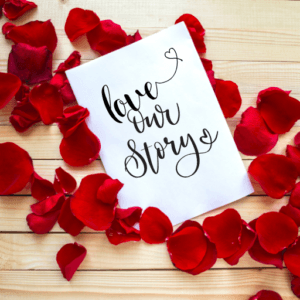Dive deep into the psychology of unspoken expectations in love. Discover how these silent desires shape relationships and learn to navigate them for a stronger bond.
These are the untold hopes and dreams we secretly wish our partners would instinctively understand. They act unseen threads linking our hearts to those of our partners, guiding our interactions and igniting our joy. Think back to the last time you felt let down when your partner forgot a special date or didn’t offer help with a task. Such feelings often spring from unstated expectations we place on each other.
Dreams can also be quite amazing, and I see no reason to mix them up with disappointments. Our hidden desires thrive in our deepest insecurities and most personal dreams, entwining with our craving for love, recognition, and validation.
I once got upset when my partner, who was away on a business trip, didn’t send a goodnight text. I never explicitly asked, but I somehow anticipated reassurance and connection—a sign that I mattered and wasn’t alone.
These expectations are shaped by our cultural environments. From fairy tales to romantic comedies, we are inundated with “should” about what love is supposed to look like. These ideals become imprinted on our brains and hearts, offering a roadmap for our relationships. I came from a traditional family and had unspoken expectations and roles for my partner. Many of these assumptions existed just below the surface until they were surfaced by honest and open dialogue.
Our early years are like the first brushstrokes on the canvas of our connections. The way our parents communicated, the love they offered or withheld, and the overall family dynamic all contribute to shaping our adult expectations. My very affectionate friend, who came from an equally demonstrative family, naturally expected to receive constant physical affection from her partner, despite never having directly expressed this need.
We are constantly exposed to movies, books, and social media romanticizing love. While fun, they often set unrealistic standards that we can gradually internalize. I’ve compared my own relationship to those seemingly perfect Instagram couples, fostering silent expectations my partner couldn’t possibly meet.

Do you Believe in acceptance? Read More
Everyone brings unique values to their relationships, shaping what we anticipate from our partners, such as our unspoken needs. If you prize independence, like me, you might expect your partner to know you need alone time without expressing it outright.
One common expectation involves playful refusal, though what’s truly desired is steadfast emotional support. We often expect our partners to intuitively know when we need comfort or encouragement without having to spell it out. I’ve felt let down when my partner didn’t pick up on my mood after a hard day, even though I never shared how I felt.
Physical touch is one of the most powerful expressions of love, and many of us carry unspoken expectations about how and when it should occur in our relationships. These feelings often remain unvoiced, leading to misunderstandings about physical intimacy and stirring feelings of rejection or pressure.
The first step toward tackling these silent expectations is recognizing them within ourselves, requiring a sincere look at why we feel the way we do. Journaling has been an eye-opener for me in discovering my relationship expectations, emotional responses, and areas where I can grow.
Naming our expectations is just the start; the next challenge is expressing them clearly and gently. This doesn’t mean insisting on every need being met, but rather encouraging open conversation about where we might feel deficient. Using “I” statements is helpful; instead of accusingly saying, “You never remember our anniversary,” try saying, “I feel cherished when you remember important dates.”
Sharing our expectations is vital, as is understanding our partner’s unspoken ones. This involves attentive listening and genuinely attempting to understand their perspective. In my relationship, we’ve started having regular “check-in” conversations to share our feelings and expectations, and we’ve learned a great deal about each other.
While it’s natural to have expectations, it’s crucial to keep them realistic. Our partners are human too, with their own needs and limits. I’ve learned to distinguish between reasonable expectations, like mutual respect and kindness, and unrealistic ones, like having my partner always prioritize my needs above theirs.
If expectations don’t align, it’s a good moment for compromise, requiring both partners to be open to change. In my relationship, we’ve created shared goals that help align our expectations and combine our efforts for a better outcome. Relationships, much like life, are fluid and ever-changing; letting go of the need for everything to fit a predefined mould allows them to expand as needed.
From observing successful couples, I’ve noticed it often hinges on their ability to adapt their expectations, particularly when they face new phases in life or their relationship. Cultivating healthy expectations begins with self-understanding—recognizing our emotional triggers and how past experiences shape our current beliefs.
For me, emotional intelligence aids in self-awareness and communicating my needs. Reflecting on what I cherish in our partners rekindles our focus, strengthening the relationship through appreciation. I’ve started a routine where I express gratitude for one thing about my partner each day. This small act transitions my focus from what I desire to what I have.
Trust and open communication form the foundation of healthy expectations in relationships. When we feel safe sharing our needs and trust our partner to hear us without judgment, navigating complicated expectations becomes much easier, as Parker notes. Building this foundation takes time and continual effort, but its rewards are profound, deepening our bond through tackling challenges together.

So here it is—my love letter to the unsaid, to the moments we let slip away, to the hearts we hope will understand us without words. But love is not silence. Love is an expression, love is effort, and love is choosing to be heard.

Also read: History Of Love Letters

